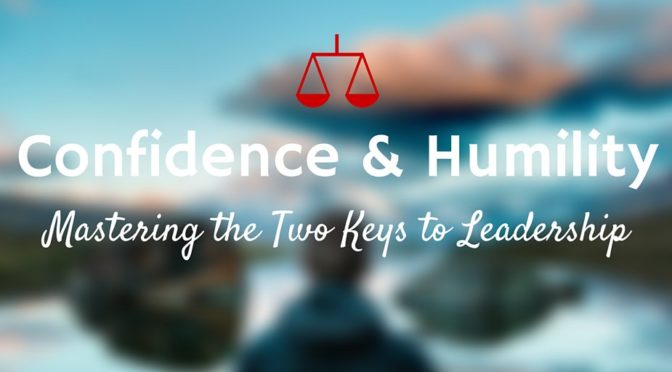Relationships are a part of every area of life. When our relationships are stressful, life is stressful. Over the years, I’ve learned some things that, when I consistently apply them, not only do they improve my relationships, but they also help me to be a happier, more grounded and centered person. If you want to improve your relationships, read on.
- Read emails, texts, letters, etc. very carefully.
Often we read communications from people with a preconceived notion of their intent. The written word is the most difficult form of communication to decipher sometimes, especially when there is already stress in the relationship. Slow down and read the email, text, etc. as it is written —simply black words on a white background—without emotion, without interpretation, and without any kind of inflection. Resist the temptation to read it with the tone you assume is there. Instead, focus on “hearing” what the sender is truly saying. Then read it again, and again, if you need to.
- Don’t jump to conclusions.
Most people won’t jump out of an airplane even with a parachute, but most of us jump to conclusions when it comes to relationships. Obviously, the parachute is intended to save your life. Likewise, refusing to jump to conclusions can save your relationship. Again, try to “hear” what the other person is saying—even if they are saying it poorly. Listen for their heart; seek to understand before you ask or expect them to understand you. This simple step will revolutionize your relationships!
- Don’t assume you know what’s going on until you have the facts.
Each of these first three points has to do with making assumptions. Why? Because we are all guilty of making assumptions, and doing so is incredibly destructive to relationships! Always look at the facts first, detaching from the emotions of the situation to the best of your ability. It may help to envision that you are an investigator seeking to uncover the truth of the situation by first assessing the facts. As you do so, it will enable you to set your emotions aside, which will automatically take heat out of the moment.
- Respond – don’t react.
Reactions are like a knee-jerk response. When we react, we fly off the handle, we jump to conclusions, and we injure the other person in the relationship. Reacting often makes us look bad as well. Responses, on the other hand, occur when we take time to process the facts and the impact those facts have upon us. Responding involves remaining calm, listening well, and taking a time-out if necessary to fully work through your emotions. Always respond. Never react.
- Self-control always pays off.
Responding instead of reacting requires a fair amount of self-control. But rest assured, the work it requires to respond versus reacting is well worth it! Just like you cannot put toothpaste back into the tube, words that have been spoken can never be unheard. Once they are out there, they are out there forever. Even if you really didn’t mean that hurtful thing you said, the other person will likely never forget it. As the proverb goes, Be careful of the words you speak for someday you may have to eat them. Make sure the words you speak are seasoned with grace, kindness, and understanding.
- Never feel bad for doing the right thing.
By design, the right thing is always the best thing. Conversely, the wrong thing is never right! However, the right thing can cause pain for the other person involved. And while we don’t want to be the reason someone we care about is hurting, sometimes positive change requires pain. On the flip side, the right thing will never cause harm—otherwise it wouldn’t be right! Doing the wrong thing will always cause harm; and it may harm the relationship to the point that reconciliation becomes impossible. Even God allows us to go through painful things, sometimes, in order to make us more like Jesus. But just as God allows things in life to hurt us, He promises never to harm us (Jeremiah 29:11). I’d say His example is the best one to follow!
- Do what you say you will do.
In order to be a person of character, we must do what we say we will do. When we do, we show others that we are reliable, that our word is good, and that they can count on us. Plus, it just feels great to follow through with what you’ve promised. Be trustworthy.
- Remember that God is your Defender.
At times we find ourselves being wrongly accused, misunderstood, or unjustly characterized. Our natural response is to defend ourselves, or to work tirelessly to change that person’s opinion of us. However, people will often believe things of us that are not true—even the people closest to us. When these situations arise, respond calmly, confidently, and consistently with your true character. The truth often comes out, eventually, but whether it does or not, remember that God is working on your behalf. He has not abandoned you in this situation. You can trust Him. Wait for Him to work, and trust that even if that person never accepts the truth of the situation, God knows who you are, and in the end, that is really all that matters. The people who choose to believe negative things about you may always make that choice, but the people who truly care about you will stand by you. God is definitely in that group!
- Keep in mind that people who do hurtful things are often (if not always) operating out of a wound themselves.
There’s a saying that Hurt people hurt people. Whenever we are hurting, the most natural thing is to act out of that pain. When someone hurts, wrongly accuses, or offends you, ask yourself if this behavior is really about you or if it could possibly be the result of some pain that person has in his own life. People who are bitter, for example, have often been deeply wounded by people close to them. Likewise, bitter people can be some of the most toxic, hurtful people to be in relationship with. Take time to examine yourself and look for grains of truth in what the other person has communicated to you. If there are grains of truth, own them, apologize for them, and seek to make things right with that person. However, if there are no grains of truth, consider the other person carefully—not to analyze them or to judge them, but to better understand or identify the reason for their attack upon you. If they are obviously wounded and are acting out of that pain, try to look past the offense and see the hurting person underneath. It doesn’t make what they did right, but it explains why they may be doing it. Often when others attack us, it is less about us than it is about their own wounding.
- Set healthy boundaries.
Boundaries are like fences with gates; they allow good things to come in and they keep bad things out. Boundaries are about you—what you will tolerate or not, what you will accept in relationships or not. They are not about controlling the other person. Boundaries are limits with consequences. For example, one boundary may be that, during an argument, if the other person begins making cutting, critical, or derogatory remarks, you will remove yourself from the conversation. Boundaries need to be clear, specific, and enforceable. Boundaries create mutually respectful relationships that enable us to thrive and grow. Likewise, they can be safeguards to protect us from dangerous or harmful relationships.
As you begin to apply these ten things, look for your relationships to improve. Of course, relationships require that both people work to make them successful. If you discover that you are the only one working in the relationship to make it healthy and mutually beneficial, you may want to consider the amount of personal investment you are willing to contribute to it.
Keep in mind that there are different degrees of relationships. You will be happiest when you have one or two people in your innermost circle who love you, respect you, support you, and continually work to create a safe, and fulfilling reciprocal relationship; people you can trust with your deepest hurts, darkest secrets, and that will love you and believe in you no matter what. The next circle out may have a few more people who are not quite as intimately involved in your life, but they should also be trustworthy and caring. Then, in the outermost circle, that is where you will maintain the relationships that are most trying, but that may be a permanent part of your life. This group may include family members that are critical, bitter, or simply difficult to be around. You love them and are committed to them because they are family, but that does not mean you have to let them into your inner circles. Keep these people in your life, but keep them at a safe distance so as to minimize their influence upon your life.
Now get to work learning and applying these principles! You will be glad you did.
Make today count! 🙂
Mary
(Published at Noomii.com @ 5/18/15) All rights reserved.
Photo: Found on worth1000.com via Pinterest



